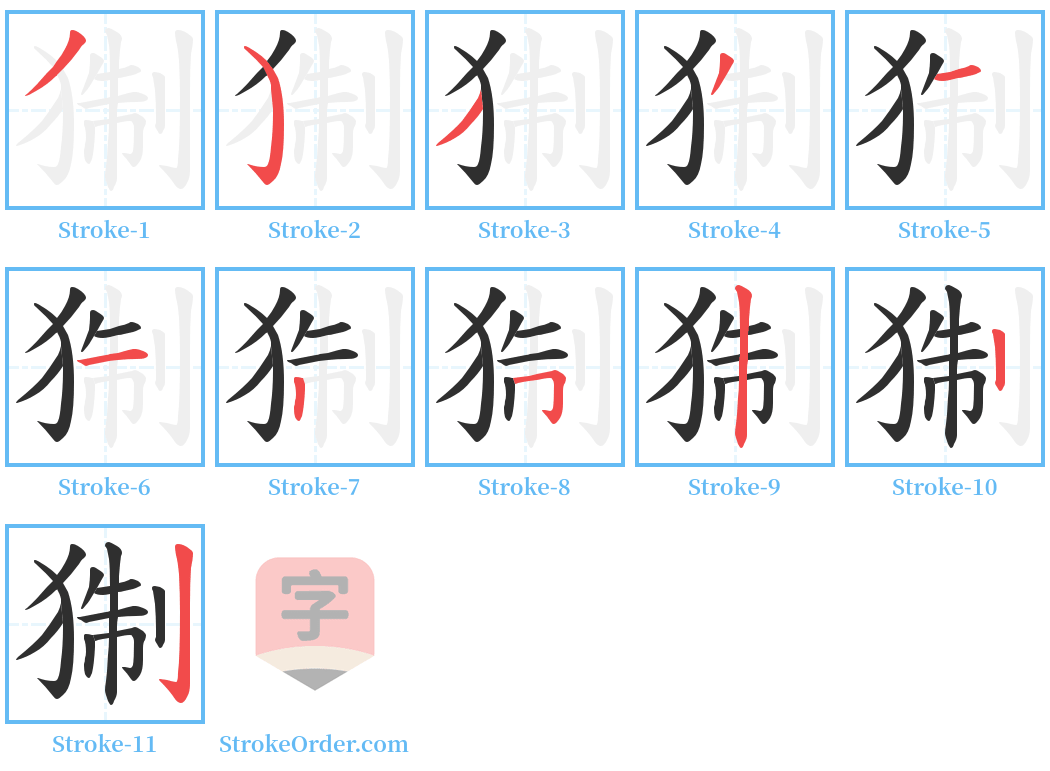猘 Stroke Order
Animated Stroke Order of 猘

Stroke Order Diagrams for 猘

Information of 猘
Pinyin
zhì
Radical
犭
Strokes
11 strokes
Usage
★★
Definition
猘 [zhì]
1. Mad dog; ferocious dog. Metaphorically refers to violent and reckless individuals.
狂犬,猛犬。比喻暴狂之徒 (Mad dog)
2. Crazy.
疯狂的。
3. Fierce; brave.
凶猛;勇猛。
Examples:
- "The mad dog can injure people, but the jackal should also die on its own."
“夫~噬固能伤人,而豺声亦当自毙。”
- "A mad horse does not touch wood; a mad dog does not throw itself into water."
“狂马不触木,~狗不自投于水。”
- "The fierce madness."
“凶~。”
- "Cao Gong heard that the strategy to pacify the south was quite difficult, often calling it ‘the fierce child is hard to contend with.’"
“曹公闻策平定江南,意甚难之,常呼‘~儿难与争锋也。’”
-----------------------------------
猘 [zhì] (noun)
1. Mad dog; ferocious dog. Metaphorically refers to violent individuals.
狂犬,猛犬。比喻暴狂之徒 (Mad dog)
引:
1. Tang Dynasty, Han Yu: "Only in the east there are mad dogs, and in the west there are snakes. How many friends and neighbors do I have left!"
引: 1 唐· 韩愈《祭马仆射文》:唯东有猘,唯西有虺。颠覆朋邻,我余有几!
例:
- For example: mad dog (vicious youth).
【例】又如:猘子(小疯狗。喻指勇猛的少年)
-----------------------------------
猘 [zhì] (adjective)
1. (of a dog) Becomes mad.
([En.] (狗) 疯狂)
引:
1. Tang Dynasty, Dai Junfu: "When I saw the mad dog, it bit people to pieces, with flesh scattered everywhere and blood flowing on the ground."
引: 1 唐· 戴君孚《广异记》:见有猘狗,啮人百节,肌肉散落,流血蔽地。
例:
- For example: mad dog.
【例】又如:猘犬(猘狗。疯狗)
2. Fierce appearance.
凶猛的样子 ([En.] fierce).
例:
- For example: fierce madness; refers to Sun Ce of the Three Kingdoms, also metaphorically a young and brave person.
【例】如:猘狂(猖狂);猘儿(指三国吴孙策。亦喻年少勇猛的人)